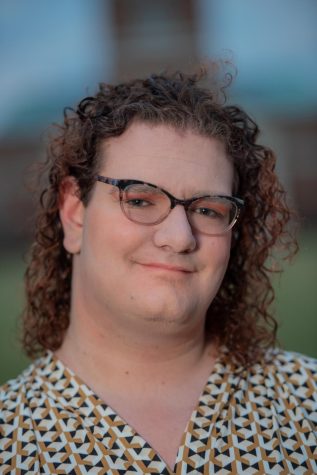In response to the U.S. Supreme Court’s June 29 ruling that affirmative action is unconstitutional, Wake Forest states that it will remain committed to diversity.
The full ramifications of the Court’s decision are yet to be known. Still, university entities like the Office of Admissions, the Office Diversity and Inclusion and Student Government all told the Old Gold & Black that they are reviewing the decision and will follow the Court’s ruling while still working to keep Wake Forest a diverse and inclusive university.
Vice President for Enrollment Eric Maguire told the Old Gold & Black that, prior to the recent decision, the Office of Admissions at Wake Forest “conducted an audit to fully understand where information about a student’s race or ethnicity intersected with [Wake Forest] recruitment, student selection, and enrollment process.” According to Maguire, the Office of Admissions is navigating the details of the recent decision.
“We are prepared for a number of potential outcomes of this decision,” Maguire said. “Now that the details of that ruling are available to us, we are working through the specifics of our policies to ensure that we fully comply with the new majority opinion. We will share any changes to our undergraduate admission policies or practice once finalized.”
He continued: “No one can exactly predict the ramifications of this decision at Wake Forest, on higher education or beyond. My admissions colleagues and I are applying our best thinking and fullest effort to ensure that we can continue to build a diverse community and reflect our Pro Humanitate values. We have risen to enrollment challenges in the past, and I am optimistic that we can do so moving forward.”
In October 2022, Maguire told the Old Gold & Black that the Office of Admissions values diversity on Wake Forest’s campus and that he did not “foresee that value changing with any potential reinterpretation of affirmative action.” At this time, he stands by the statement he made in October.
“This is not the first time, nor do I believe this to be the last time, the topic of affirmative action will reach the Supreme Court,” Maguire said. “In their most recent ruling, the majority opinion reversed decades of legal precedent and removed a helpful tool in creating diverse learning communities. Wake Forest will not waver in its commitment to creating and sustaining inclusive, diverse learning communities; our mission and values have not changed with this ruling.”
In a statement released on June 29, Wake Forest President Dr. Susan Wente and Provost Michele Gillespie said that Wake Forest “will continue to recruit and enroll academically qualified students of diverse backgrounds who seek an intellectual home at Wake Forest where they belong and thrive, in compliance with the Court’s opinion.”
Students react to the decision
Some students, like senior Iyana Robin Trotman, say the decision is a manifestation of anti-Black racism and a reminder that rights and reforms enacted by white people can always be rescinded.
“In a country that has thrived off the labor of Black slaves to build its prized institutions, it is disturbing to see the overturn of affirmative action, which will undoubtedly impact Black students the most,” Trotman said. “The decision to do so buys into a centuries-old, white supremacist rhetoric that tells us that colorblindness is the solution to racism as opposed to doing the work to undo systemic racism and anti-Blackness but more specifically, to give Black students what they are rightfully owed.”
Trotman continued: “We can only hope that people across the country are catalyzed to work together to build a more transformative vision of education and to resist white supremacy in all the ways it manifests in our personal and professional lives and also in the universities we attend.”
In the meantime, some students are expressing anxiety about how the decision might impact the next generation of would-be college students.
“It’s tricky and a bit scary because we don’t know how this will look when it’s put into place,” senior Sarah Cadena told the Old Gold & Black. “I just hope this doesn’t deter students from applying to their dream schools.”
Student Government pledges support for diversity efforts
Student Body President Jackson Buttler told the Old Gold & Black via email that he supports the message from administration and assures students that Student Government will do everything it can to support diversity and inclusion efforts on campus.
“It is through embracing our differences that we can foster an enriching and supportive community at Wake Forest,” Buttler said. “Under my leadership, Student Government is fully committed to supporting all diversity initiatives undertaken by the university. We will actively take steps throughout this academic year to contribute to this important cause.”
Some of these contributions include a subcommittee on the Student Budget Advisory Committee (SBAC) focused on equitable allocation of funds. This committee, formed last year, allocates resources to organizations and programs that promote diversity and inclusion on campus under the direction of Student Government Treasurer Tim Erday.
Buttler also mentioned diversifying efforts within Student Government — which has faced some student criticism due to its current executive board being comprised of only white students.
In the few months since Student Government elections, a few students have posted on Fizz about their disappointment with Student Government’s lack of diversity.
Two posts feature a photo of the Student Government executive team with President Wente and Vice President for Campus Life Dr. Shea Kidd-Brown with seemingly sarcastic captions like “Love the diversity” and “Some real diversity here.”
“Acknowledging the criticism regarding the lack of minority representation within Student Government is essential, and it is crucial to address this issue directly,” Buttler said. “As President, I am committed to uplifting diverse student voices and bringing them to the administrative table — speaking alongside students rather than on their behalf.”
He continued: “We have been actively working on diversifying Student Government by continuing to implement inclusive recruitment practices, reaching out to underrepresented student groups, actively encouraging students to run for a position within the organization and providing financial assistance to students who may not be able to run an election without funds from Student Government.”
Recently, Student Government has been working alongside Vice President of Diversity and Inclusion Dr. José Villalba to create mandatory training sessions for Student Government members on topics from implicit bias recognition to cultural competency and understanding systemic racism.
Villalba spoke to the Old Gold & Black and stated that the Office of Diversity and Inclusion will continue its work in advocating for and educating the Wake Forest community on inclusion and equity efforts.
“The statement shared by President Wente and Provost Gillespie speaks to our unwavering commitment to an inclusive, diverse learning community,” Villalba said. “Our continued aspirations of creating and sustaining a community where all who live, learn and work at our institution feel like they belong will continue to guide our work.”
He continued: “There is still information to glean from the 237-page opinion, so it is too soon to announce a facilitated program on this topic, but the ODI will work with colleagues from across the institution to assist the university community in better understanding the implications of the SCOTUS opinion.”
Background on the ruling
Affirmative action is the process by which many colleges and universities consider race as a factor in admissions. By issuing a joint ruling in the two cases, the Supreme Court ruled that it is unconstitutional for public institutions, like UNC, and private institutions, like Harvard and Wake Forest, to consider race as a factor in admissions decisions.
Students for Fair Admissions, a nonprofit group dedicated to striking down affirmative action, brought lawsuits against Harvard University and the University of North Carolina at Chapel Hill, claiming the admissions schemes at those two schools unjustly discriminated against the group’s clients. The Supreme Court ruled 6-3 against UNC and 6-2 against Harvard (Justice Ketanji Brown Jackson, who served on Harvard’s Board of Overseers, recused herself in the case against her alma mater).
The Supreme Court did, however, leave in place race-conscious admissions at armed service academies and did not entirely outlaw the consideration of an applicant’s background. Applicants may still write to schools about their life experiences, including those having to do with their race and ethnicity, the Court ruled, but schools may only consider experiences of racialization and discrimination at the individual level.
The Old Gold & Black is following the aftermath of this decision closely and will continue to report as information becomes available.
Correction July 13: A previous version of this story’s third paragraph contained a quote from Vice President for Enrollment Eric Maguire that was not accurately transcribed.













